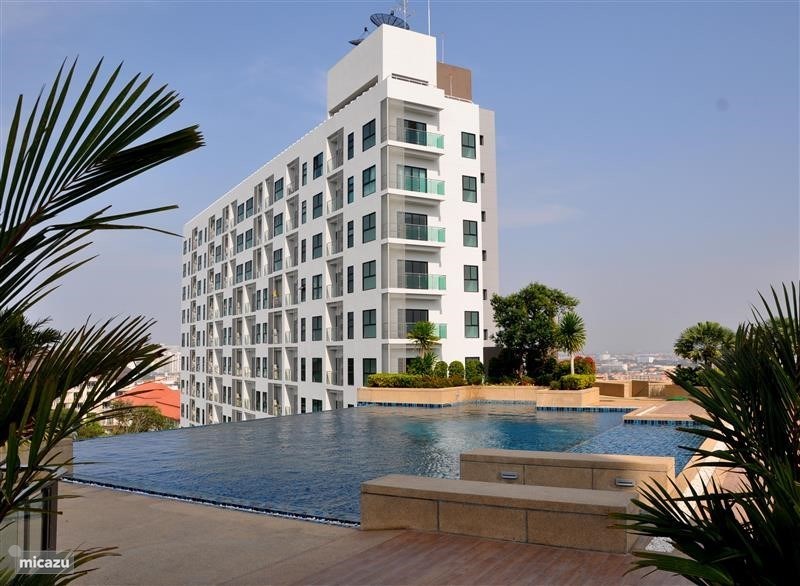Investing in Thailand- How Feasible Is It?

Thailand has in the past few years been experiencing an upward trend, both local and foreign investment. Its economic growth moves towards a more Asian integration resulting in smooth trading particularly in Special Economic Zones (SEZs). This has helped to give foreign companies more confidence to continue expanding in the country. However, the feedback is that there is a need for more clear-cut investment promotion policies. This majorly applies to the service businesses that are protected under the Foreign Business Act (FBA).
This year is going to be an investment year in Thailand. In 2015, the country introduced a number of economic policy reforms in preparation for the next phase. The government has now offered numerous incentives and privileges to be directed to investments as part of this move.
Already in the plan is a focus to develop ten industries in future. These include; next generation smart electronics, cars, agriculture and biotechnology, niche tourism, robotics, biochemical, food, digital and mechanical services. The niche tourism markets are affluent, wellness, and medical services.
The industrial clusters that are targeted for research and development centers so as to attract investors from all over the globe are fisheries and related fields, agriculture, textile, ceramic production, leather goods, garments, jewelry and ornaments, furniture, machinery and other equipment, medical, automobile, plastics, pharmaceutical, businesses to support tourism, industrial estates, and pharmaceuticals.
There is an extension of up to 2 years on corporate-income-tax by the Board of Investment (BOI for those investments that can commence their operation before the end of 2016). Those projects in Special Economic Zone (SEZs) will receive exemptions from corporate income tax for two more years, but that can’t go beyond eight years.
In 2015 during the first three-quarters, Japan was the largest providers of Foreign Direct Investment (FDI) having proposed 367 projects. Singapore was next with 102 projects, with the U.S. contributing 37 projects.
Harsh Vardhan Shringla, the outgoing Ambassador to India said that his country’s FDI to Thailand had increased. Indian Embassy has in the last 18 months organized 45 economic events that involved Thailand’s small and medium sized enterprises. At the moment, there are 40 Companies from India manufacturing in Thailand with more than 100 offices. Thailand’s Petrochemical, IT, and automobile appears to be some of the areas in which India is interested the most.
The American president of the Chamber of Commerce in Thailand, Darren Buckley, said that Investors from America were more interested with the Special Economic Zones (SEZs) and were doing an expansion of the same. However, they needed to receive more information about the incentives that are offered by the Government of Thailand.
Promoting high technology and super-cluster investment by the government is regarded as a move in the right direction. As much as major investors from the United States are more interested in investing in those businesses, they are also interested in SMEs too. However, firms from the United States have called on the Thai Government to also allow them invest in the service sector, as most of those businesses are still under protection by FBA.
The Chairman of the Economic-Research Committee of the Japanese Chamber of Commerce in Bangkok, Mr. Masayasu Hosumi, said that already more than 4,500 Japanese companies are operating in Thailand, so there might still be a small interest in investing in the recently set-up Special Economic Zone (SEZs) at the moment.
The reason this might be this way is because of a significantly large number of companies that are already in operation here. Mr. Hosumi also said that investors from Japan would like to see more incentives issued by the Thailand government.
 Thailand has in the past few years been experiencing an upward trend, both local and foreign investment. Its economic growth moves towards a more Asian integration resulting in smooth trading particularly in Special Economic Zones (SEZs). This has helped to give foreign companies more confidence to continue expanding in the country. However, the feedback is that there is a need for more clear-cut investment promotion policies. This majorly applies to the service businesses that are protected under the Foreign Business Act (FBA).
This year is going to be an investment year in Thailand. In 2015, the country introduced a number of economic policy reforms in preparation for the next phase. The government has now offered numerous incentives and privileges to be directed to investments as part of this move.
Already in the plan is a focus to develop ten industries in future. These include; next generation smart electronics, cars, agriculture and biotechnology, niche tourism, robotics, biochemical, food, digital and mechanical services. The niche tourism markets are affluent, wellness, and medical services.
The industrial clusters that are targeted for research and development centers so as to attract investors from all over the globe are fisheries and related fields, agriculture, textile, ceramic production, leather goods, garments, jewelry and ornaments, furniture, machinery and other equipment, medical, automobile, plastics, pharmaceutical, businesses to support tourism, industrial estates, and pharmaceuticals.
There is an extension of up to 2 years on corporate-income-tax by the Board of Investment (BOI for those investments that can commence their operation before the end of 2016). Those projects in Special Economic Zone (SEZs) will receive exemptions from corporate income tax for two more years, but that can’t go beyond eight years.
In 2015 during the first three-quarters, Japan was the largest providers of Foreign Direct Investment (FDI) having proposed 367 projects. Singapore was next with 102 projects, with the U.S. contributing 37 projects.
Harsh Vardhan Shringla, the outgoing Ambassador to India said that his country’s FDI to Thailand had increased. Indian Embassy has in the last 18 months organized 45 economic events that involved Thailand’s small and medium sized enterprises. At the moment, there are 40 Companies from India manufacturing in Thailand with more than 100 offices. Thailand’s Petrochemical, IT, and automobile appears to be some of the areas in which India is interested the most.
The American president of the Chamber of Commerce in Thailand, Darren Buckley, said that Investors from America were more interested with the Special Economic Zones (SEZs) and were doing an expansion of the same. However, they needed to receive more information about the incentives that are offered by the Government of Thailand.
Promoting high technology and super-cluster investment by the government is regarded as a move in the right direction. As much as major investors from the United States are more interested in investing in those businesses, they are also interested in SMEs too. However, firms from the United States have called on the Thai Government to also allow them invest in the service sector, as most of those businesses are still under protection by FBA.
The Chairman of the Economic-Research Committee of the Japanese Chamber of Commerce in Bangkok, Mr. Masayasu Hosumi, said that already more than 4,500 Japanese companies are operating in Thailand, so there might still be a small interest in investing in the recently set-up Special Economic Zone (SEZs) at the moment.
The reason this might be this way is because of a significantly large number of companies that are already in operation here. Mr. Hosumi also said that investors from Japan would like to see more incentives issued by the Thailand government.
Thailand has in the past few years been experiencing an upward trend, both local and foreign investment. Its economic growth moves towards a more Asian integration resulting in smooth trading particularly in Special Economic Zones (SEZs). This has helped to give foreign companies more confidence to continue expanding in the country. However, the feedback is that there is a need for more clear-cut investment promotion policies. This majorly applies to the service businesses that are protected under the Foreign Business Act (FBA).
This year is going to be an investment year in Thailand. In 2015, the country introduced a number of economic policy reforms in preparation for the next phase. The government has now offered numerous incentives and privileges to be directed to investments as part of this move.
Already in the plan is a focus to develop ten industries in future. These include; next generation smart electronics, cars, agriculture and biotechnology, niche tourism, robotics, biochemical, food, digital and mechanical services. The niche tourism markets are affluent, wellness, and medical services.
The industrial clusters that are targeted for research and development centers so as to attract investors from all over the globe are fisheries and related fields, agriculture, textile, ceramic production, leather goods, garments, jewelry and ornaments, furniture, machinery and other equipment, medical, automobile, plastics, pharmaceutical, businesses to support tourism, industrial estates, and pharmaceuticals.
There is an extension of up to 2 years on corporate-income-tax by the Board of Investment (BOI for those investments that can commence their operation before the end of 2016). Those projects in Special Economic Zone (SEZs) will receive exemptions from corporate income tax for two more years, but that can’t go beyond eight years.
In 2015 during the first three-quarters, Japan was the largest providers of Foreign Direct Investment (FDI) having proposed 367 projects. Singapore was next with 102 projects, with the U.S. contributing 37 projects.
Harsh Vardhan Shringla, the outgoing Ambassador to India said that his country’s FDI to Thailand had increased. Indian Embassy has in the last 18 months organized 45 economic events that involved Thailand’s small and medium sized enterprises. At the moment, there are 40 Companies from India manufacturing in Thailand with more than 100 offices. Thailand’s Petrochemical, IT, and automobile appears to be some of the areas in which India is interested the most.
The American president of the Chamber of Commerce in Thailand, Darren Buckley, said that Investors from America were more interested with the Special Economic Zones (SEZs) and were doing an expansion of the same. However, they needed to receive more information about the incentives that are offered by the Government of Thailand.
Promoting high technology and super-cluster investment by the government is regarded as a move in the right direction. As much as major investors from the United States are more interested in investing in those businesses, they are also interested in SMEs too. However, firms from the United States have called on the Thai Government to also allow them invest in the service sector, as most of those businesses are still under protection by FBA.
The Chairman of the Economic-Research Committee of the Japanese Chamber of Commerce in Bangkok, Mr. Masayasu Hosumi, said that already more than 4,500 Japanese companies are operating in Thailand, so there might still be a small interest in investing in the recently set-up Special Economic Zone (SEZs) at the moment.
The reason this might be this way is because of a significantly large number of companies that are already in operation here. Mr. Hosumi also said that investors from Japan would like to see more incentives issued by the Thailand government. 
